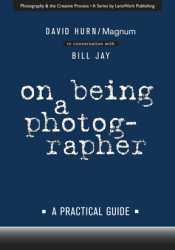>>4237999How do you know when something is right? Trial and error is important no matter what point you're at because you need to find out what "right" looks like. How much wasted film stock has your ignorance yielded? Far too much at this point, because stock and time spent learning is not wasted, and if you think you can skip that and content yourself with having "bypassed" all the work, all you will ever do is waste.
An example: you know what A Good Composition looks like because you read about it in a book. You go out to take photos, try to replicate that composition, but miss it slightly and end up with a worse version of a generic shot.
Another example: you learned sunny 16 so you go out to take photos. You don't realize that the sky is actually hazy and it's evening so all your shots come out underexposed.
The knowledge serves as the basis, but if you don't practice then your knowledge is not coming up in the moment. This is why you "waste" shots trying to get to a point where "getting it right" is something you barely have to think about.
Now consider that where "right" is depends largely on what the photographer wants. How much do you underexpose to get that perfectly gloomy mood that you want? What is your subject and how do you frame it to emphasize or de-emphasize certain apsects? How do you keep up enough consistency in these (and many other) areas in order to create a body of work that has a strong theme that runs throughout it?
To "make" a photo, it's not a simple matter of saying that you are doing so. You need a certain minimum level of mastery of how to mechanically take a photo that when you are out with a camera, you are not thinking about how to mechanically take the photo but about other things which you can capably manifest in your photos and BE READABLE to your audience, assuming your audience is also not ingorant.
You're at the level of ignorance where you can't even determine who else is ignorant, so you just assume it's everyone.

